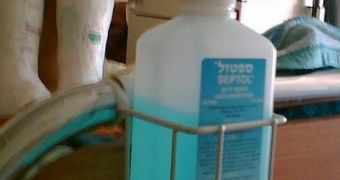Scientists at the National University of Ireland, in Galway, have recently found that the use of disinfectants in homes may be effective against normal germs, but have learned that it also promotes the development of superbugs. These organisms appear from “normal” strains of bacteria or microbes, but evolve so as to become immune to the effects of the chemical agents used to fight them off. In a very worrying twist, the group has also found out that the bacteria not only become immune to the effects of the disinfectants, but also to antibiotics, e! Science News reports.
According to the paper accompanying the findings, which is published in the January issue of the esteemed medical journal Microbiology, the new knowledge hints at drawbacks that now exist in the way hospitals manage the spread of infections. The new work was conducted on the microorganism known as Pseudomonas aeruginosa. Common disinfectants were added to lab cultures, and the bacteria proved extremely capable of adapting itself. In addition, it also became immune to the effects of ciprofloxacin, a commonly prescribed antibiotic.
What really puzzled the team was the fact that the microorganism became immune to the drug by default, without ever being exposed to it directly. What P. aeruginosa did was adapt its cells so as to pump out the chemical agents more effectively. Unfortunately for us, it learned to do so for both the disinfectants and the antibiotic. Moreover, the DNA of the bacteria changed, in a way that allowed it to become immune to the effects of all ciprofloxacin-class antibiotics.
“In principle this means that residue from incorrectly diluted disinfectants left on hospital surfaces could promote the growth of antibiotic-resistant bacteria. What is more worrying is that bacteria seem to be able to adapt to resist antibiotics without even being exposed to them,” Dr. Gerard Fleming, who has been the leader of the new investigation, explains. “We need to investigate the effects of using more than one type of disinfectant on promoting antibiotic-resistant strains. This will increase the effectiveness of both our first and second lines of defense against hospital-acquired infections,” he adds.

 14 DAY TRIAL //
14 DAY TRIAL //